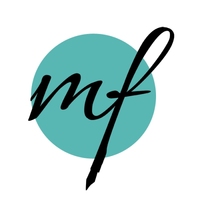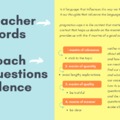Interjú Körmendi Anitával, szervezetfejlesztővel, coachcsal
Interview with Anita Körmendi, organisational developer and coach
1. Mikor és miért döntöttél úgy, hogy coach leszel?
2 éve találtam rá Polgár Lilire, aki azóta a mentorom és tanárom. Alapvetően nem coach szerettem volna lenni. A szervezetfejlesztés érdekelt. A coaching első időkben számomra csak a szervezetfejlesztési folyamat egyik fontos része volt. Pontosan ezért döntöttem később úgy, hogy elsajátítom az alapokat, hiszen egy szervezetfejlesztőnek ismernie kell a coach szemléletet is és adott esetben alkalmaznia is kell a folyamatban.
2. Milyen képzés(eke)t végeztél el? Tervezel még valamilyen (coach, tréner szakmával kapcsolatos) képzés elvégzését?
Szervezetfejlesztés, life coach, csoportos coach és tréneri tanfolyamokat végeztem el. A business coach és a haladó coach tanfolyamok még előttem vannak.
3. Mivel foglalkoztál előtte? Maradtál a pályán vagy a coaching lett a fő hivatásod?
A fő hivatásom–munkám az acéliparhoz, szerszámgyártáshoz, autóiparhoz, azaz ipari-műszaki világhoz köt. Egy multiban vagyok felsővezető, egy önálló költséghelyű területet menedzselek 12 éve. A coaching és a szervezetfejlesztés pillanatnyilag a „mellékállásom”.
(Amennyiben maradtál az eredeti pályán, miképpen tudtad a coachingot beépíteni a meglévő szakmádba, munkahelyeden?)
Sajnos nem elfogadó a környezet. Ezért tréningeket, csoportos coachingokat, egyéni üléseket nem tarthatok. Viszont a kommunikációmban, a közös probléma megoldásokban, a feladatok kiosztásában, az értékelésekben, a stratégiák kidolgozásában, a visszacsatolásokban használom a coaching módszereit.
4. Hogyan változott meg az életed amióta elvégezted a coach képzést?
A kommunikációm nyugodtabb, átgondoltabb. A kérdéseim lényegretörőbbek.
5. Mik a terveid a coach szakmán belül, mit szeretnél elérni?
A tapasztalataimat szeretném hasznosítani, amiket az elmúlt 20 évben szereztem a gyártás és az ipari folyamatok területén. Szeretnék szervezetfejleztéssel foglalkozni, melynek egy fontos pillére a coaching.
6. Mi a legnagyobb kihívás számodra a coach szakmán belül?
Hogy nem az a feladatom, hogy tanácsot adjak! Az én feladatom a terelgetés nincs szükség a véleményemre.
7. Miben rejlik szerinted a coaching ereje?
Az egyszerűségében rejlik a nagyszerűsége! Az ügyfél Önmaga oldja meg az elakadását. Tulajdonképpen semmilyen különleges terápiára, vagy évekig tartó folyamatra nincs szükség bizonyos esetekben ahhoz, hogy átütő eredményeket érjen el aki coachoz fordul.
8. Ha tudod és szeretnéd, oszd meg velünk az eddigi legütősebb sikeredet, amit egy coaching ülésen és/vagy folyamatban értél el!
Egy olyan ember jelentkezett nálam, aki az élete több területén is nagyon megakadt, vagy veszélyesen kibillent. Kevés eszköz volt a kezemben, hiszen mindenhez még igen magányos is az illető. Sziszifuszi, húzd meg - ereszd meg folyamat után, az utánkövetések alkalmával tulajdonképpen már Ő segít nekem rendezni a gondolataimat a saját életemmel kapcsolatban. Intelligens ügyfél, sok coach fogást megtanult és kiválóan alkalmazza is. Büszke vagyok rá. Coacholja a coach-ot ☺
9. Olyannak, aki még sosem hallott a coachingról, miképpen tudod meghatározni, közelebb hozni a számára?
Elképzelni sem lehet optimálisabb helyzetet, minthogy a szorongató gondjainkról egy olyan emberrel beszélgessünk, akivel előtte sosem találkoztunk! Aki nem ismer bennünket, nincsenek velünk kapcsolatban prekoncepciói! Az illető csak ránk figyel és nem minősít, vagy kritizál, oktat ki bennünket. Nem traktál minket a tanácsaival és mégis haladunk a megoldás felé vezető úton. Igaz feladatokat kell megoldjunk, de ha igazán akarjuk azt a megoldást, akkor ezek is értünk vannak. A folyamat belátható távlatú és így az eredmény is aránylag gyorsan érkezik. Minden csak rajtunk múlik, mégis biztonságban vagyunk, hiszen van egy tanult segítőnk, aki figyeli lépéseinket.
10. Milyen módon lehetne szerinted javítani a coachok széles társadalmi megítélésén?
Addig, amíg a kevésbé alkalmasak érdeklődés hiányában nem hullanak ki, addig azoknak kell többszörösen bizonyítani, akik professzionálisan végzik a munkájukat. A coach szakma aránylag újdonság Magyarországon. A felkapottságot az önjelölt szakemberek számának növekedése jelzi. Sokan gondolják könnyű kereseti lehetőségnek. Ezek ugyanazok az emberek, akik masszőrködtek már, vagy fitneszben is adtak személyi edzéseket, voltak már AVON tanácsadók, most éppen coachnak vallják magukat. Idő kell, semmi más és átpártolnak majd egyéb új területekre. Viszont addig a lelkiismeretes szakembereknek tartani kell a frontot és bizonyítani kell minden nap akkor is, ha sokan leírják a munkánkat!
~
1. When and why have you decided to become a coach?
I came across Lily Polgar’s courses 2 years ago, and she has since been my mentor and teacher. Initially, I didn't want to be a coach. I was interested in organizational development. For me, in the beginning, coaching was just an important part of the organizational development process. That is why I decided later to learn the basics of coaching, because an organization developer must be familiar with the coaching method and, if necessary, be able to apply it to the process.
2. What kind of training(s) did you complete? Are you planning any other courses or trainings (related to coach and trainer profession)?
I have completed Organizational Development, Life Coach, Group Coach and Trainer courses. Business coach and advanced coaching courses are still ahead of me.
3. What was your original profession? Have you remained in the field or has coaching become your career?
My main profession, my job is in the steel industry, tool manufacturing, automotive industry, i.e. related to the industrial-technical field. I am a senior executive in a multinational company and I have been managing a self-financed area for 12 years. Coaching and organizational development is currently my "side gigs".
(If you stayed in your initial profession, how are you able to incorporate coaching into it?)
Unfortunately, my work environment is not really accepting. I can therefore not hold trainings, group coaching, nor individual sessions. However, I use coaching techniques in my communication, solving joint problems, assigning tasks, evaluating, developing strategies, in providing feedback.
4. How has your life changed since you became a coach?
My communication is calmer, more conscientious. My questions are more straightforward.
5. What are your plans as a coach, what would you like to achieve in the coaching profession?
I would like to use the experience I have gained over the last 20 years in manufacturing and industrial processes. I would like to deal with organizational development, an important pillar of which is coaching.
6. What is the biggest challenge for you in the coaching profession?
The biggest challenge is not to give advice. My job is to steer the process and not to have an opinion.
7. What is the main power of coaching?
Its greatness lies in its simplicity! The clients basically solve the problem themselves. In fact, in certain cases not even a special therapy nor a years-long process is required to achieve breakthrough results.
8. Tell us about your biggest success as a coach!
I had a client once who was stuck in many areas of his life. Furthermore, he was rather lonely, so there were not many tools to work with and it was a difficult process with ups and downs, but after it, during the follow-ups, he basically helped me to put things into perspective regarding my life. He was an intelligent client, who learnt a few tricks of the coaching trade and used them exceptionally well. I am proud of him for coaching the coach. :)
9. How would you define coaching to somebody who has never heard of coaching before? How would you bring it closer to them?
It is impossible to imagine a more optimal situation than talking about your troubles to someone you have never met before. Those who do not know us have no preconceptions about us. The person only listens to us and does not want to evaluate or criticize us, nor to educate us about our life choices. They do not bore us with their advice and yet we remain on our path to the solution. We have to solve real problems, but if we really want a solution, then it will be available to us. The process is foreseeable and results are delivered relatively quickly. It is all up to us, but we are in a safe place, since there is a trained helper by our side to follow our every step.
10. What do you think would be the best way to improve the public perception of coaches?
As long as the less suitable ones do not disappear due to lack of interest, those who do their job professionally need to constantly prove themselves to their clients and to the public. The coaching profession is relatively new in Hungary. The growing number of self-nominated professionals indicates how trendy the profession is despite its novelty. Many seem to consider it an easy way to earn a lot of money. These are the same people who have been working as masseurs or personal trainers in fitness centres, or as beauty product sellers and consultants, and are now claiming to be coaches. It is only a matter of time until they find another trendy area. In the meantime, conscientious professionals shall continue proving every day the value of coaching, defying the people who want to bring the profession down.


